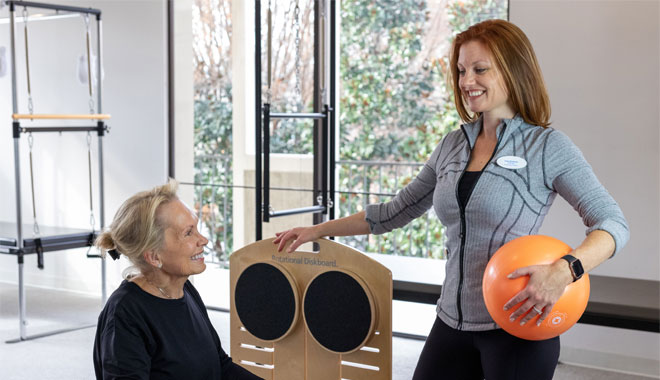What to Expect at Your First Physical Therapy Appointment
Physical therapy treatment is a bit different at Inspire Health compared to the traditional outpatient physical therapy clinic, this is probably why you decided to seek treatment with us. You may be wondering what to expect on your first visit and how to be prepared.

Pre-Appointment
Prior to your appointment, you will receive an email asking you to complete the intake forms found online. You will be asked basic personal information, specific information about the condition you are seeking therapy for, your medical history, your prior treatments for this condition, any testing results you may have, and your goals for therapy. By completing these forms prior to arrival, your therapist will be able to review this information and the session will be more effective.
Meeting Your Therapist
Your therapist will meet you in the reception area and welcome you to a private treatment room where you both will discuss your condition in depth. This is your time to fully discuss the condition or injury you are seeking treatment for. Our therapists value and respect this initial conversation and believe it directly relates to the quality of your treatment and your outcome.
The Evaluation
Once you have discussed your needs with your therapist an evaluation will take place. This means your physical therapist will be evaluating the range of motion of any joints affected and other joints that are related to the area. They will evaluate your strength by manual muscle testing and other tests that indicate strength and endurance of muscles. Your neurologic status will also be tested by evaluating reflexes, neurodynamics (how your nerves slide, glide and tolerate tension) balance and other specific tests.
The quality of movement will be assessed by watching you perform specific movements related to the area of injury or complaint. Your therapist will also palpate (touch) the area of pain and adjacent areas to assess trigger points, inflammation, swelling, hypersensitivity, areas of increased density, or areas that have myofascial restriction. Also, your therapist will move your joints passively to assess the mobility of the joint. Your therapist will select specific special tests that are shown to be reliable in predicting specific conditions, compromise or injury.
Diagnosis
Once this evaluation is complete, the information will be reviewed to determine your physical therapy diagnosis, which may be the same or different than a medical diagnosis you may have received from your physician. This PT diagnosis will be fully explained to you and you will be able to ask questions. Often we use models or visual anatomy apps to help explain and educate clients about their condition and body. We are firm believers that you are an important participant in the healing process and that includes understanding what is happening in your body.
Treatment Options
After your therapist explains what is the cause for your pain and the contributing factors that they discovered in the evaluation, you will discuss treatment options. Your therapist will propose a plan to treat your injury or condition and you will discuss how you feel about the plan. Sometimes clients choose one treatment option over another because of their preferences, you are an active participant in the plan. Once you both agree upon a plan for your care, you will begin treatment.
The Treatment
You will receive a full treatment on the day of your evaluation as well as self care information and exercises to perform at home. Your therapist will outline a general expectation of how your treatments will progress, with the understanding that your response to treatment will continually be evaluated for adjustments as necessary.
At the conclusion of your session, your therapist will make a recommendation on how frequently you should come for treatments and how many sessions it is expected you will need to achieve your goals. They will also make recommendations for any other services that are appropriate for your recovery. At the reception desk, you will be able to make your next appointment. Your therapist will provide their contact information and card so you can communicate with them regarding any questions, problems, or concerns.
